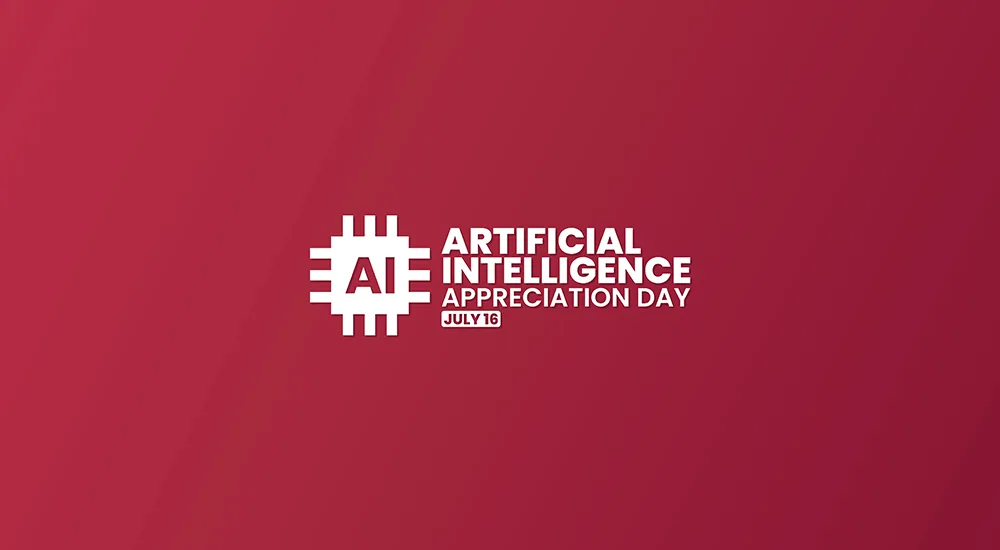On this AI Appreciation Day, we’re not just tipping our hats to large language models or marveling at the latest AI agent—we’re taking a moment to acknowledge the seismic shift AI is creating across every industry, function, and job role. From generative models that write your emails to agentic systems that act on your behalf, AI is no longer a glimpse of the future—it’s the defining force of the present. As innovation accelerates, questions around ethics, skills, and enterprise impact grow louder. So, we asked some of the region’s top tech leaders:
What emerging AI trend are you most excited about—and why?
There are many exciting AI trends emerging every day, some of which hold existential potential, such as Quantum AI. However, if we focus on what is immediately impactful and currently reaching real-world adoption, the convergence of Agentic AI and Multimodal AI stands out clearly. This convergence is particularly exciting because it moves AI beyond merely answering questions to actively performing tasks and making autonomous decisions. By combining the proactive, task-oriented nature of agentic AI with the rich contextual understanding offered by multimodal processing — such as interpreting visual, audio, and textual data — this powerful synergy can significantly transform various industries. In customer service, multimodal agentic AI can truly “see” and understand what the customer experiences, enabling rapid and highly accurate problem-solving, far beyond traditional conversational chatbots, making it an immediate sweet spot for platforms like ServiceNow.

Antonio Rizzi, Area VP, Solution Consulting EMEA South at ServiceNow
The rise of “zero UI” — interfaces that respond to intent, not clicks. Think voice interfaces that actually understand nuance, tone, and context — not just commands. The most powerful tech will be the least visible, anticipating needs and removing friction entirely. When AI starts to feel more like conversation than interaction, we’re in a new era of human-machine collaboration.

Inna Weiner, AVP Product at AppsFlyer
One of the most exciting trends in AI today for enterprises is the democratisation of data, and it’s not hard to see why. For years, the promise of big data has been a constant refrain in boardrooms and industry conferences. But in reality, fully unlocking its value has often required highly specialised teams of data scientists, engineers, and analysts. The barrier to entry has remained high.
AI is changing that. We’re now seeing the rise of data management platforms underpinned by AI and powered by end-to-end metadata. This makes it possible for a far wider range of employees across roles and skill levels to engage meaningfully with data, each through a lens suited to their specific needs. Developers can automate data mapping, data scientists can instantly find trusted, high-quality data and shave up to 80% off the time they spend wrangling datasets, while business users can access curated, reliable data products to drive strategic decisions.

Levent Ergin, Chief Strategist for Climate, Sustainability and AI at Informatica
An exciting AI trend that’s becoming more popular is personalized learning and the use of intelligent collaboration tools. Students inside a classroom or even in a remote learning environment now have access to such tools, which are shaping how they perform. AI has made it possible for learning to adapt to the needs of each individual student. This made learning more productive, enabling students to gain a deeper understanding of what they were learning. Digital transformation varies by market here in the Middle East, where some countries are pushing fast for digital adoption while others are just starting. It’s great that AI tools are scalable, giving everyone access to a more tailored and flexible learning experience.

Tolga Özdil, Regional Commercial Director, Middle East, Turkey & Africa (META), Asus
What skills do you think humans will need most in an AI-driven future?
The most valuable skills in the AI-driven workplace will span both technical expertise and human-centric capabilities. On the technical side, there will be a growing demand for skills in AI literacy, data analysis, cybersecurity, prompt engineering, automation tools, and the development of agentic AI systems. Equally important are human-centric skills such as critical thinking, problem-solving, emotional intelligence, and effective interpersonal communication—skills that enable individuals to collaborate, lead, and adapt in increasingly complex and dynamic environments.

Walid Gomaa, CEO, Omnix International
Ironically, the more AI advances, the more essential human skills become. Empathy, creativity, and ethical judgment will only grow in importance. While technical know-how is valuable, what truly sets people apart is the ability to ask thoughtful questions, interpret outcomes, and lead with emotional intelligence, that’s what will set people apart. AI may be a powerful co-pilot, but it’s human insight that charts the course.

Rahul Misra, SVP & Managing Director – Middle East and Africa, IFS
How can organizations ensure responsible and ethical AI use while scaling innovation?
This is the big question for the next decade.
Starting with transparency, every single stakeholder in an organization needs to know where their data comes from, how their models make decisions, and be clear about limitations.
Governance also plays a key role here. Companies need clear policies for AI use, regular audits, and diverse teams to find blind spots. Crucially, ethics shouldn’t be checked at the end of an AI project; it should be part of the whole design. Ask early: Who might this harm? Who might it leave out? How can we mitigate bias?
Collaboration between industry standards, government policies, and open dialogue between tech providers, businesses, and the public also helps keep us accountable.

Leandro Galli, Senior Solutions Engineer, Confluent
Responsible AI must begin with secure and transparent design. This includes building governance and accountability into every layer of the platform, not adding it as an afterthought. Organisations should align their AI deployment with regulatory frameworks and community trust. In the UAE, where the government is leading with proactive AI and cybersecurity policies, we are seeing a strong balance between innovation and ethics. We support this by delivering secure, AI-powered solutions that are built to serve both technological progress and human responsibility.

Mark Molyneux, EMEA CTO, Cohesity
Which industry do you believe has been most positively transformed by AI so far?
The financial services industry has seen some of the most transformative AI adoption, improving fraud detection, personalizing customer experiences, and optimizing risk models. However, we’re now seeing accelerated impact across healthcare, manufacturing, and the public sector as organizations use AI to drive efficiency, improve outcomes, and respond to real-time challenges. The true transformation happens when AI moves from isolated projects to becoming a core part of enterprise operations.

Sid Bhatia, Area VP & General Manager – Middle East, Turkey & Africa at Dataiku
Healthcare is definitely one of them. Early disease detection through medical imaging and predictive analytics, along with personalized treatment plans, is all powered by machine learning. AI is saving lives and improving outcomes. It accelerates drug discovery, optimizes hospital operations, and enables remote diagnostics, especially in underserved areas. During the pandemic, AI played a critical role in tracking outbreaks and supporting vaccine development. The combination of vast data, real-time analysis, and clinical expertise has made healthcare more efficient, accessible, and precise. AI is enhancing care and reshaping the very foundation of modern medicine.

Ezzeldin Hussein, Regional Senior Director, Solution Engineering, SentinelOne
While all verticals arguably have been impacted by AI, in this cybersecurity professional’s opinion, the biggest positive impact has been felt within the software development industry.
Today, software can be developed faster and with less vulnerabilities using AI, compared to rooms full of human software developers. While the negative side may include the elimination of a human workforce, time to value, rapid completion of projects, and streamlined development processes have all experienced positive impacts from AI. In my opinion, this value will continue to accelerate and continue to exceed AI developments in healthcare and financial sectors for the foreseeable future.

Morey Haber, Chief Security Advisor at BeyondTrust
I’d say the creative industries have seen the most visible transformation so far – writing, design, marketing, and education. In many ways they’ve been the proving ground for democratised access to intelligence and creativity. But I think the real long-term impact will be felt in operational and enterprise environments. In these scenarios AI won’t just generate content, it will unlock innovation across an entire organisation. That shift is already underway.





















